This article needs additional citations for verification .(May 2022) |
| |||||
| Centuries: | |||||
|---|---|---|---|---|---|
| Decades: | |||||
| See also: | List of years in India Timeline of Indian history | ||||
Events in the year 1945 in India.
This article needs additional citations for verification .(May 2022) |
| |||||
| Centuries: | |||||
|---|---|---|---|---|---|
| Decades: | |||||
| See also: | List of years in India Timeline of Indian history | ||||
Events in the year 1945 in India.

The Indian Independence Movement, was a series of historic events in South Asia with the ultimate aim of ending British rule in India. It lasted until 1947, when the Indian Independence Act 1947 was passed.
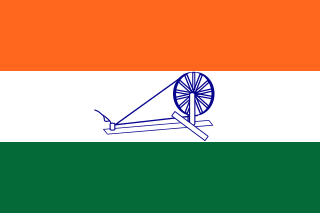
The Indian National Army was a collaborationist armed unit of Indian collaborators that fought under the command of the Japanese Empire. It was founded by Mohan Singh on 1 September 1942 in Southeast Asia during World War II.

Subhas Chandra Bose was an Indian nationalist whose defiance of British authority in India made him a hero among many Indians, but his wartime alliances with Nazi Germany and Imperial Japan left a legacy vexed by authoritarianism, anti-Semitism, and military failure. The honorific 'Netaji' was first applied to Bose in Germany in early 1942—by the Indian soldiers of the Indische Legion and by the German and Indian officials in the Special Bureau for India in Berlin. It is now used throughout India.
Events in the year 1943 in India.

During the Second World War (1939–1945), India was a part of the British Empire. British India officially declared war on Nazi Germany in September 1939. India, as a part of the Allied Nations, sent over two and a half million soldiers to fight under British command against the Axis powers. India was also used as the base for American operations in support of China in the China Burma India Theater.

The Provisional Government of Free India or, more simply, Azad Hind, was a short-lived Japanese-supported provisional government in India. It was established in Japanese occupied Singapore during World War II in October 1943 and has been considered a puppet state of the Empire of Japan.
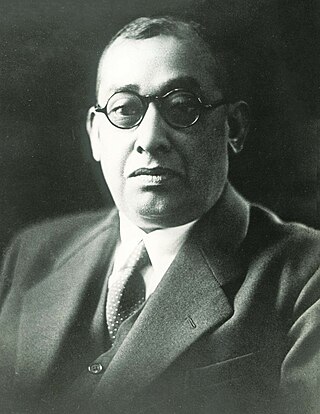
Rash Behari Bose was an Indian revolutionary leader who fought against the British Empire. He was one of the key organisers of the Ghadar Mutiny and founded the Indian Independence League. Bose also led the Indian National Army (INA) which was formed in 1942 under Mohan Singh.

Emilie Schenkl was an Austrian stenographer, secretary and trunk exchange operator. She was the wife or the companion of Subhas Chandra Bose, an Indian nationalist leader.
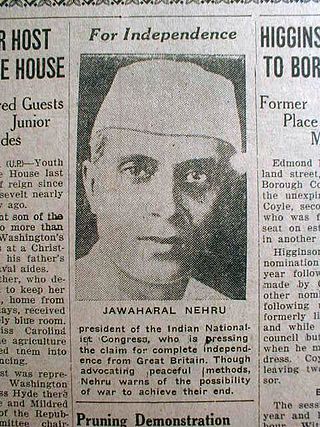
The Declaration of Purna Swaraj was a resolution which was passed in 1930 because of the dissatisfaction among the Indian masses regarding the British offer of Dominion status to India. The word Purna Swaraj was derived from Sanskrit पूर्ण (Pūrṇa) 'Complete', and स्वराज (Svarāja) 'Self-rule or Sovereignty', or Declaration of the Independence of India, it was promulgated by the Indian National Congress, resolving the Congress and Indian nationalists to fight for Purna Swaraj, or complete self-rule/total independence from the British rule
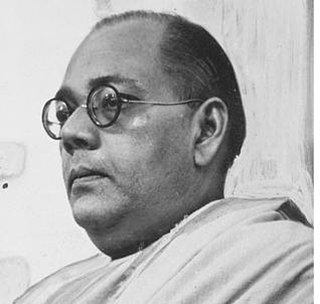
Sarat Chandra Bose was an Indian barrister and independence activist.

Indian nationalist leader Subhas Chandra Bose died on 18 August 1945 from third-degree burns sustained after the bomber in which he was being transported as a guest of Lieutenant General Tsunamasa Shidei of the Imperial Japanese Kwantung Army crashed upon take off from the airport in Taihoku, Japanese Formosa, now Taipei, Taiwan. The chief pilot, copilot, and General Shidei were instantly killed.

The Indian Legion, officially the Free India Legion or 950th (Indian) Infantry Regiment, was a military unit raised during the Second World War initially as part of the German Army and later the Waffen-SS from August 1944. Intended to serve as a liberation force for British-ruled India, it was made up of Indian prisoners of war and expatriates in Europe. Due to its origins in the Indian independence movement, it was known also as the "Tiger Legion", and the "Azad Hind Fauj". As part of the Waffen-SS it was known as the Indian Volunteer Legion of the Waffen-SS.

Shah Nawaz Khan was an Indian politician who served as an officer in the Indian National Army (INA) during World War II. He was profoundly influenced by Subhas Chandra Bose's speeches asking POWs to join the Indian National Army and to fight for a free India, Khan led the army into North-Eastern India, seizing Kohima and Imphal which were held briefly by the INA under the authority of the Japanese. In December 1944, Shah Nawaz Khan was appointed Commander of the 1st Division at Mandalay. After the war, he was tried, convicted for treason, and sentenced to death in a public court-martial carried out by the British Indian Army. The sentence was commuted by the Commander-in-chief of the Indian Army following unrest and protests in India. After the trial, Khan declared that he would henceforth follow the path of non-violence espoused by Mahatama Gandhi and joined the Congress party. Having successfully contested the first Lok Sabha in 1952 from Meerut, Khan had an illustrious parliamentary career. He was elected four times to the Lok Sabha from Meerut constituency in 1951, 1957, 1962 and 1971. He lost in the 1967 and 1977 Lok Sabha election from Meerut.
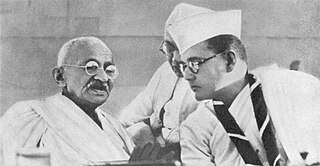
Subhas Chandra Bose also known as Netaji ,his political views were in support of complete freedom for India with a classless society and state socialism at the earliest, whereas most of the Congress Committee wanted it in phases, through a Dominion status.

Anuj Dhar is an Indian conspiracy theorist, author and former journalist. He has published several books around the locus of death of Subhas Chandra Bose that propound theories about his living for several years after the purported plane crash, thus contradicting the current consensus. Dhar is also the founder-trustee of a not for profit organisation, Mission Netaji, which campaigns for the declassification of documents concerning Bose.
The Indian Independence League was a political organisation operated from the 1920s to the 1940s to organise those living outside British India into seeking the removal of British colonial rule over the region. Founded by Indian nationalists, its activities were conducted in various parts of Southeast Asia. It included Indian expatriates, and later, Indian nationalists in-exile under Japanese occupation following Japan's successful Malayan Campaign during the first part of the Second World War. During the Japanese Occupation of Malaya, the Japanese encouraged Indians in Malaya to join the League.
The Indian Struggle, 1920–1942 is a two-part book by the Indian nationalist leader Netaji Subhash Chandra Bose that covers the 1920–1942 history of the Indian independence movement to end British imperial rule over India. Banned in India by the British colonial government, The Indian Struggle was published in the country only in 1948 after India became independent. The book analyses a period of the Indian independence struggle from the Non-Cooperation and Khilafat Movements of the early 1920s to the Quit India and Azad Hind movements of the early 1940s.
Bela Mitra, née Bose was a Bengali revolutionary involved with the Jhansi Rani Regiment, the Women's Regiment of the Indian National Army, and a social worker.

Sisir Kumar Bose was an Indian freedom fighter, pediatrician and legislator. He was the son of Indian nationalist leader Sarat Chandra Bose, nephew of Indian freedom fighter Subhas Chandra Bose and husband of former Member of Parliament Krishna Bose (1930–2020).

Netaji Jayanti or Netaji Subhas Chandra Bose Jayanti, officially known as Parakram Diwas or Parakram Divas, is a national event celebrated in India to mark the birthday of the prominent Indian freedom fighter Netaji Subhas Chandra Bose. It is celebrated annually on 23 January. He played a pivotal role in Indian independence movement. He was the head of Indian National Army. He was the founder-head of the Azad Hind Government.